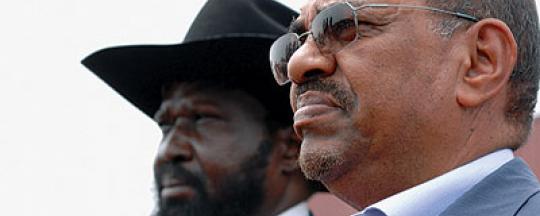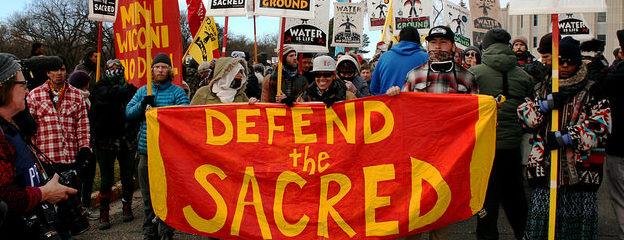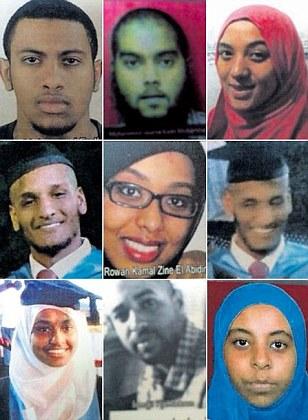Doing the Addis shuffle: Kiir and Bashir waltz again – By Aly Verjee

2013: a new year, but an old set of issues for Sudan and South Sudan. Presidents al-Bashir and Kiir concluded the latest round of bilateral talks in Addis Ababa this weekend. The statement of outcomes of the summit, issued by the African Union High Level Implementation Panel (AUHIP), is available here.
Some thoughts on the latest talks:
1. Re-committing to prior commitments is good, but implementation is as uncertain as ever. There’s little new in the outcome document, and it’s hard to say it represents substantial progress beyond the cooperation agreement signed between Sudan and South Sudan in September 2012. (For more on the deal reached last year, see here.) To quote AUHIP’s Thabo Mbeki: “So what the presidents have said is that all existing agreements must be implemented without any preconditions. So what is going to be necessary is that all of the various teams that deal with these various things, will have to get together to implement…So there was no specific discussion on any one of these, whether its oil, or trade or whatever but that all existing agreements must be implanted (sic) without delay and unconditionally.”
Once more, summit-level diplomacy is complicated by facts on the ground: days before the meeting, South Sudan reported airstrikes and incursions by the Sudanese Armed Forces in Raja county, Western Bahr el-Ghazal, possibly connected with accusations made by Sudan two weeks ago that the SPLA was helping Darfur rebels regroup in the area, possibly part of the longer-term struggle over control of the nearby Kafia Kingi enclave. It’s difficult to square such continuing developments with promises for an effectively demilitarised border.
2. How long can resolution of Abyei be deferred? The AUHIP – and the AU’s Peace and Security Council (PSC) – have repeatedly set – and missed – dates for action on Abyei. On 24 October the PSC agreed to: “Request[] the Parties to engage each other, with the facilitation of the AUHIP, on the basis of the AUHIP’s Proposal on the Final Status of Abyei Area of 21 September 2012, seeking to reach consensus on the Final Status of the Abyei Area, within a period of six weeks from the date of the adoption of this communiqué,” and “in the event that the Parties fail to reach agreement on the Final Status of the Abyei Area within the six”week period mentioned above, Council will endorse the 21 September 2012 Proposal as final and binding.”
Six weeks came and went, and on 14 December the PSC met again, noting “that the deadline for the Parties to negotiate on the basis of this Proposal expired on 5 December 2012, but that no negotiations had taken place by that time. Council urgently calls for the anticipated negotiations to take place, and eagerly awaits the outcomes of the Summit Meeting referred to above.”
With the latest agreement, Abyei’s political resolution is back on an indefinite timetable, dependent on procedural implementation which may easily drag on: “The Presidents will reconvene to determine the Final Status of Abyei after the ACTION under 1.2 above [formation of the Abyei Area Administration, Council and Police Service] and the ACTION under 2.1 below [AUHIP’s Implementation Matrix] have been implemented.”
3. Are there changes in Ethiopia’s quiet diplomacy? Former Ethiopian Prime Minister Meles Zenawi played an influential role in the Sudan-South Sudan mediation, following up with and regularly telephoning both presidents, despite his illness and other preoccupations. (For a historical overview of Meles’ involvement, see Harry Verhoeven’s article here.) When Meles died just weeks before the breakthrough September 2012 cooperation agreement, the Sudan file passed to his successor, Haile Mariam Desalegn. Desalegn had been involved with the Sudans under Meles, but did not enjoy the same personal rapport with the leaders as his former boss. In the past, Meles was able to give the necessary backing to AUHIP efforts, especially when things stumbled. It remains to be seen if Desalegn can do the same.
And so, the Presidents return home and the mediators prepare for next week in Addis. The dance continues on 13 January when the Implementation Matrix is due to be presented by the AUHIP, and the Joint Political and Security Mechanism (JPSM) is scheduled to convene. Happy new year to all in Sudan and South Sudan.
Aly Verjee is senior researcher at the Rift Valley Institute. He blogs regularly for Making Sense of Sudan.






